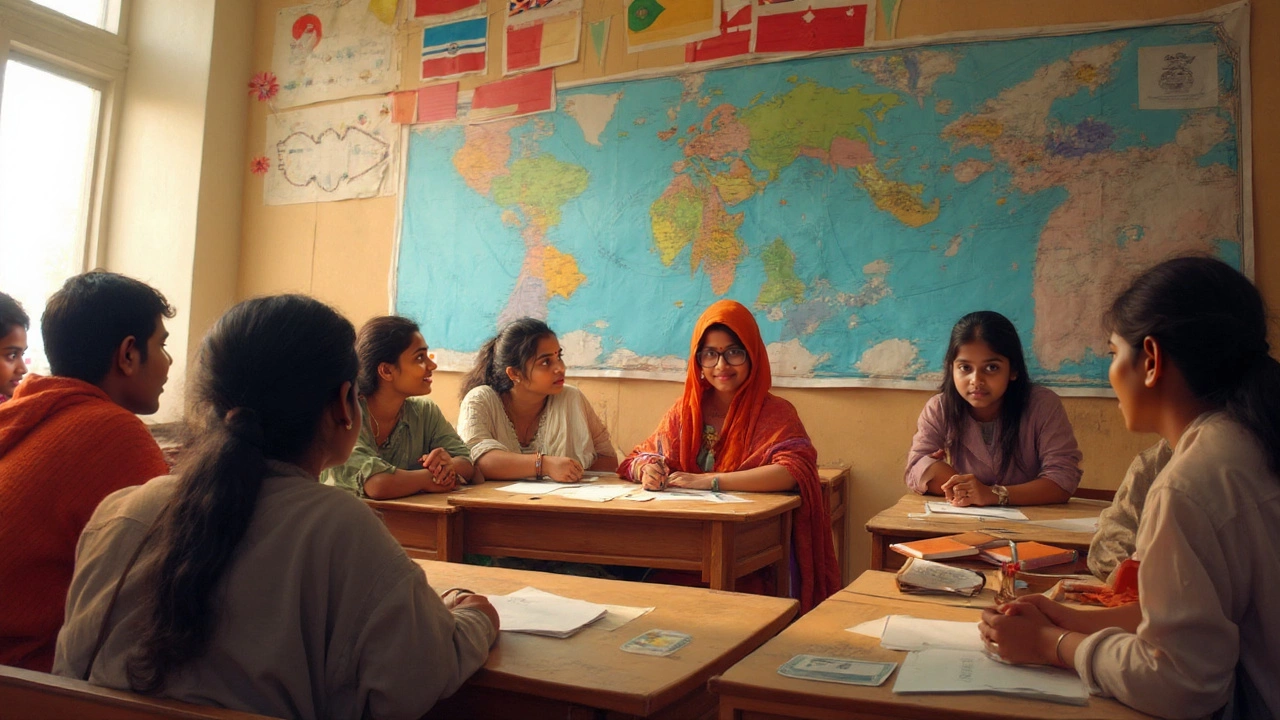
UK vs USA Exams: Which Are Easier and Why?
Wondering if UK or USA exams are easier? Clear, evidence-backed comparison of GCSEs/A-levels vs AP/SAT, formats, grading, and what suits your study style.
Thinking about packing your bags and hitting a campus in another country? You’re not alone. Thousands of Indian students take the leap each year, and the good news is you can do it too without getting lost in paperwork.
First off, studying abroad isn’t just a fancy resume line. It gives you real‑world exposure to different teaching styles, cultures, and job markets. Imagine learning engineering in Germany, where labs are high‑tech, or studying business in the UK, where you sit next to future CEOs. Those experiences translate into better problem‑solving skills and a stronger network.
Money matters, too. Many universities abroad offer scholarships that cover tuition, housing, or even flight costs. In comparison, a scholarship at an Indian college often only covers a fraction of fees. Plus, the cost of living in some Asian countries like Malaysia or Thailand can be lower than in big Indian metros, stretching your budget further.
Lastly, employers love candidates who have lived abroad. They see adaptability, independence, and a global mindset – qualities that are hard to teach in a classroom.
Start with a clear goal. Ask yourself: Do you want a degree, an exchange semester, or a short‑term language course? Your answer will narrow down the country and program type.
Next, check eligibility. Most universities ask for a minimum GPA, English proficiency (IELTS/TOEFL), and sometimes a statement of purpose. Gather your transcripts, prepare a concise SOP, and ask a teacher for a strong reference letter.
Funding is the biggest hurdle for many. Look for scholarships on the university’s website, government schemes like the Indian Council for Cultural Relations (ICCR), or private foundations. Don’t forget to explore education loans that have low interest rates for overseas studies.
Visa applications can be stressful, but they become manageable if you follow the checklist: admission letter, proof of funds, passport photos, and a completed application form. Schedule the interview early and keep all documents organized.
Finally, think about accommodation. On‑campus hostels are convenient for newcomers, but off‑campus rentals often cost less and give you a taste of local life. Join student groups on social media; they’re great for tips on safe neighborhoods and cheap grocery stores.
Once you land, give yourself a month to adjust. Learn basic phrases, explore the campus, and connect with other Indian students – they’ll become your support system.
Studying abroad is a journey, not just an academic move. With a clear plan, the right paperwork, and a bit of courage, you’ll turn that dream into a real experience that shapes your career and life.

Wondering if UK or USA exams are easier? Clear, evidence-backed comparison of GCSEs/A-levels vs AP/SAT, formats, grading, and what suits your study style.

Curious about the best countries for studying abroad? Get real insights on study options, costs, and student life, plus tips for picking your dream destination.

A lot of people think studying abroad means breaking the bank, but there are ways to do it for little or no money. This article uncovers which countries actually offer free or dirt-cheap education to international students and what hidden costs pop up along the way. We'll dig into scholarships, tuition, and tell you how some clever planning can mean getting a degree overseas without draining your wallet. Get first-hand insights and tips to make the dream of studying abroad realistic and affordable. Know what’s free, what’s not, and how to beat the system.

The concept of attending college for free in Europe is enticing to many American students. This article explores various European countries offering tuition-free education and the associated costs, including living expenses. It also provides insights into application processes and language requirements. Practical tips for students considering this option are shared to ensure a smooth transition. Discover how an education in Europe can broaden both academic and cultural horizons.